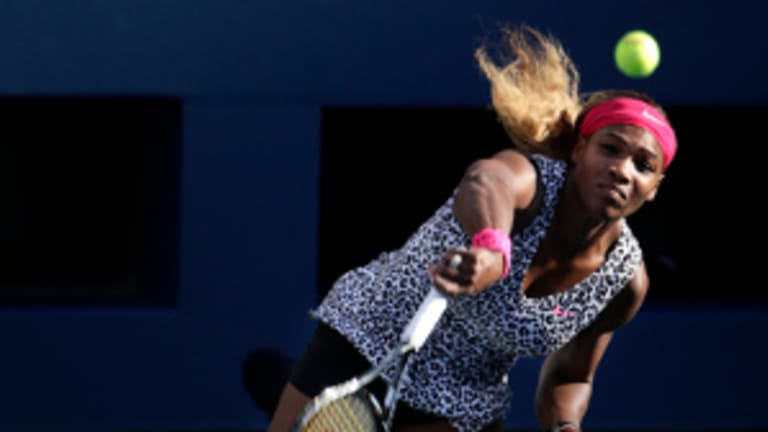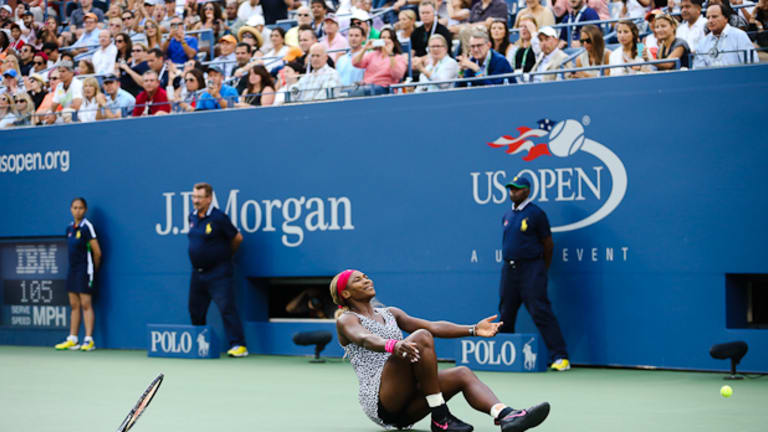To wind up 2014, I’m reposting 14 articles I liked from this past season. I’ll put up one each day until January 5, when the new season begins. Today, my report on the day Serena Williams joined the 18-major club.
NEW YORK—Sometimes it pays to be a perfectionist.
In her quarterfinal match at the U.S. Open, against Flavia Pennetta, Serena Williams got off to a very slow start, losing the first three games. She was determined not to let it happen again in her next round, and she didn’t; two days later she jumped all over Ekaterina Makarova in the semifinals and never let up. Yet even in that immaculate performance, Serena found a blemish. Her serve wasn’t up to snuff. Which, in a way, was OK; it gave her something to improve in the final.
“It’s good news,” Serena said after beating Makarova, “knowing I could try to serve better for one more match.”
Going strictly by the statistics, it’s hard to say Serena improved that shot against Caroline Wozniacki in the final. Williams made just 53 percent of first serves, was broken twice, and threw in some shaky double faults in the first set. But the stats don’t tell the story of how much Serena’s biggest shot meant to her coming down the stretch on Sunday. Knowing she had a chance to win her 18th Grand Slam and tie Chris Evert and Martina Navratilova on the all-time list, Serena was tight. On some shots, and in the early going especially, you could almost feel her nerves in Arthur Ashe Stadium. It was her serve, which grew stronger with every game, that steadied her and kept her moving toward the finish line, which she crossed in 75 minutes, 6-3, 6-3.
For example:

